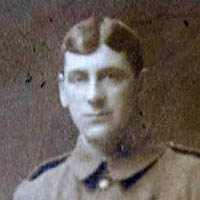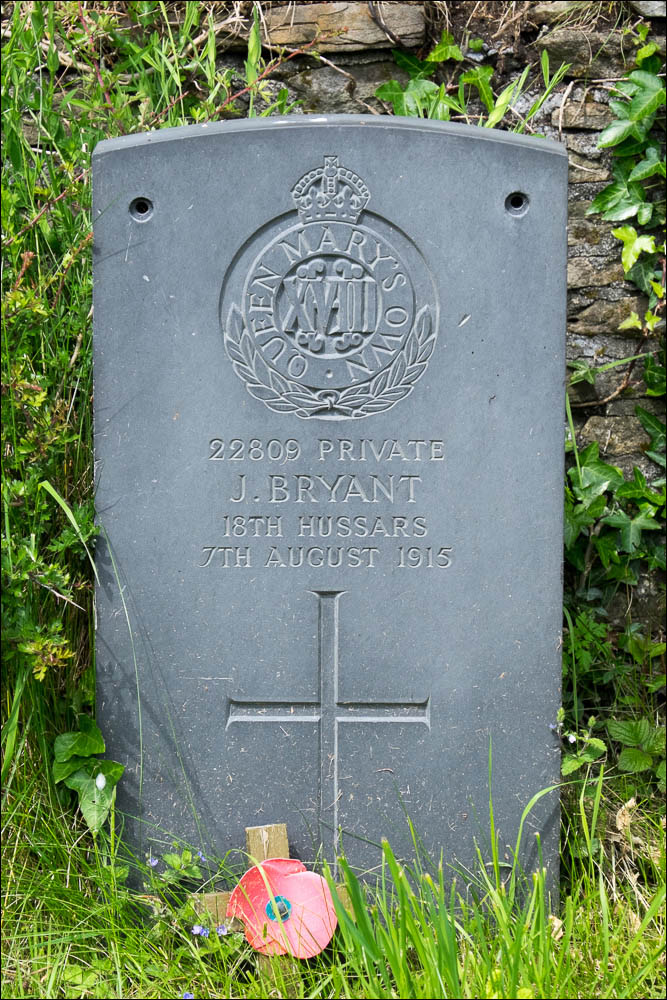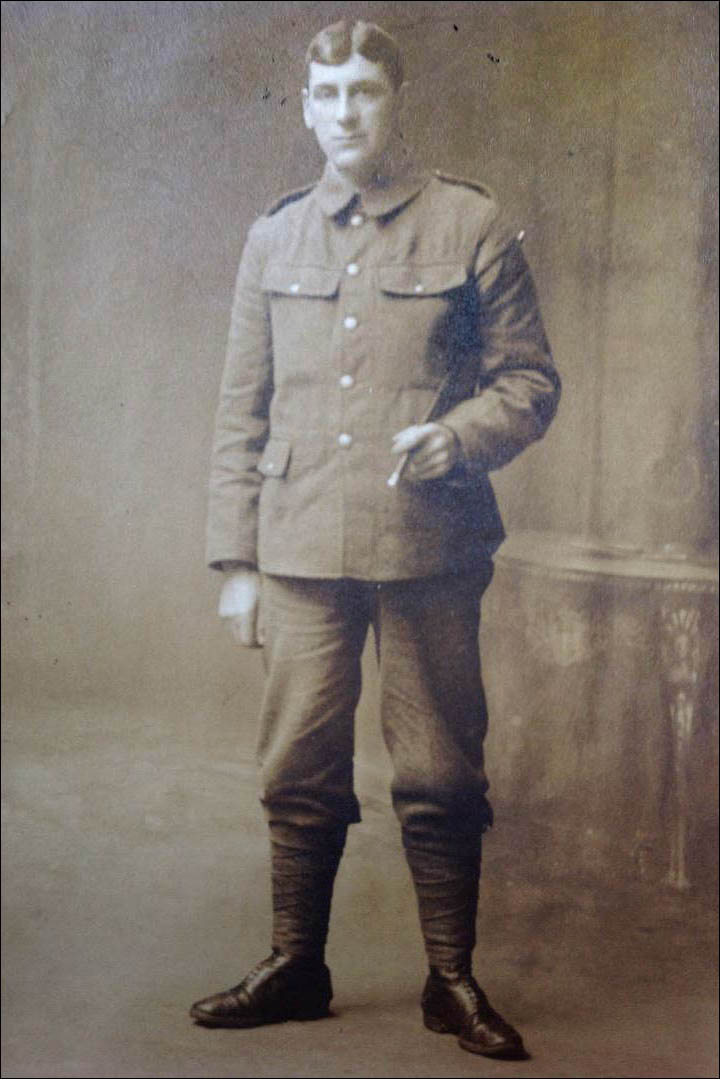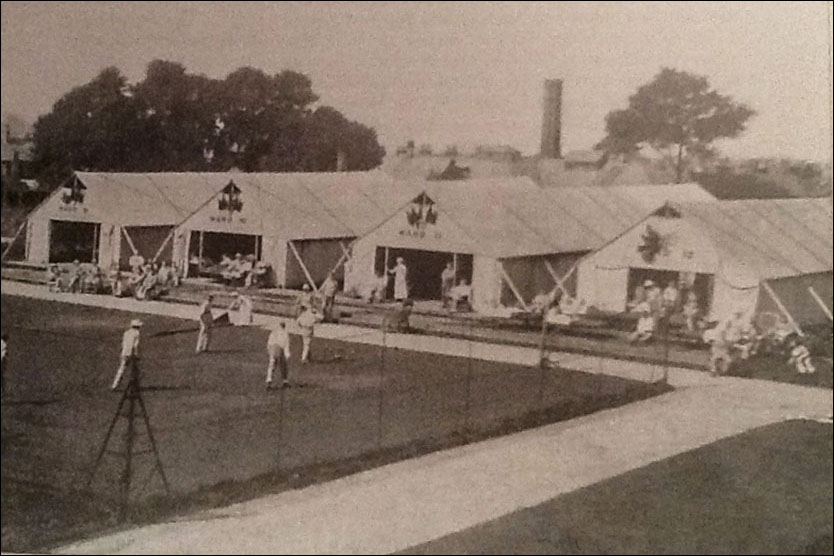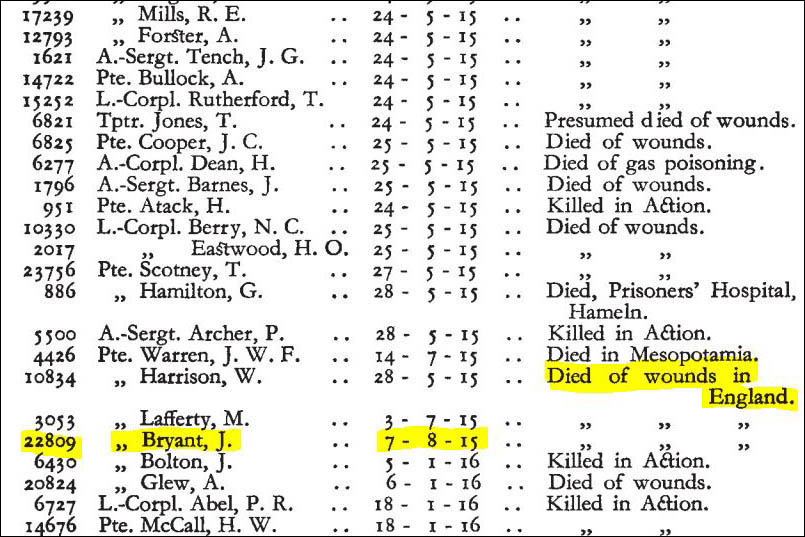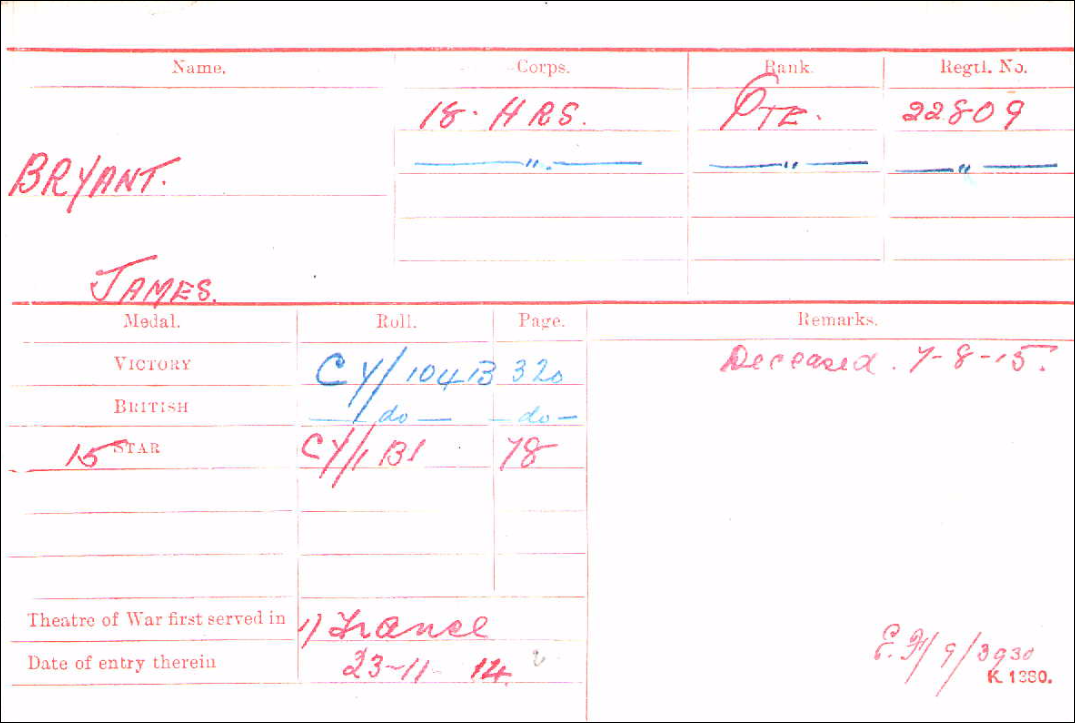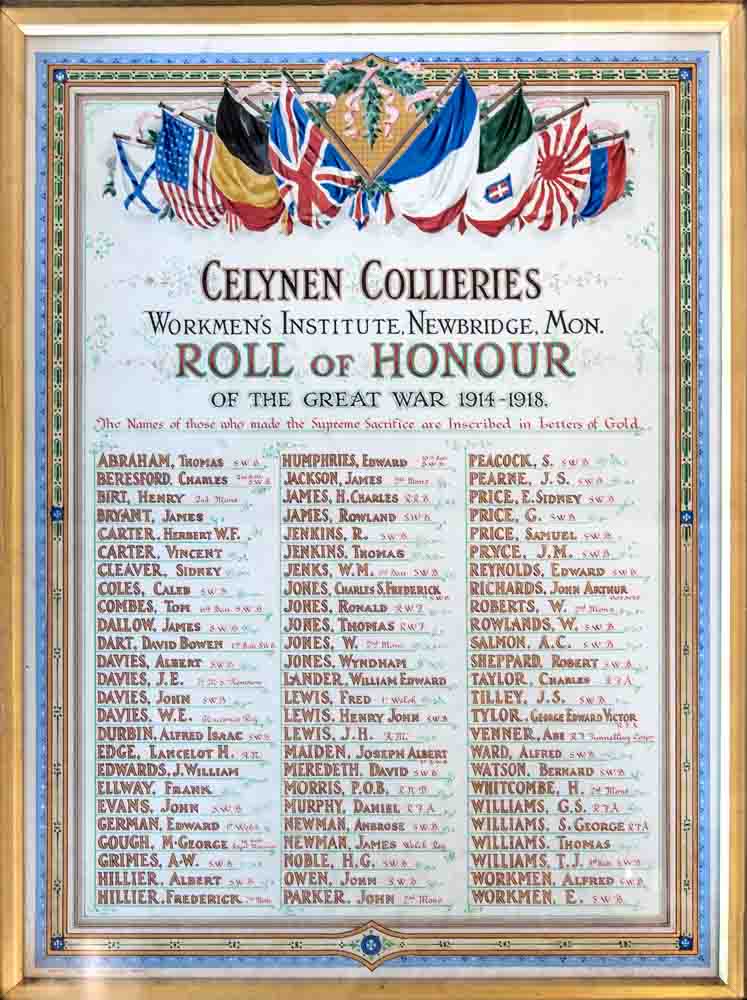| Unit/Regiment | Household Cavalry and Cavalry of the Line |
| Battalion | 18th (Queen Marys Own) Royal Hussars |
| Rank | Private |
| Service Number | 22809 |
Theatre of War first served in | (1) France |
| Date of entry therein | 23/11/1914 |
| Age at Death | 37 |
| Date of Death | 07/08/1915 |
| Burial/Memorial Reference | Pontllanfraith (New Bethel) Congregational Chapelyard |
| CWGC Family Details | Son of Mrs M. Bryant, Greenfield House, Old Tram Road, Pontllanfraith, Mons. |
| SDGW – Where Born | Newport, Mon |
| Enlisted | Newport, Mon |
| Resided | Pontllanfraith, Mon |
| How Died | Died |
| Theatre of War | Western European Theatre |
| Medal Entitlement | 1914-15 Star
British War Medal
Victory Medal |
| Notes | Commemorated on the Celynen Collieries Roll of Honour |
Family
Military
James Bryant enlisted in Newport, Monmouthshire and was posted as a Private to the 18th (Queen Mary's Own) Royal Hussars,
his service number was 22809.
It was with the 18th Hussars that he landed in France on 23rd November 1914. From 24th November to 23rd February 1915 they remained
in Berthen. During March and April 1915, the Regiment were based around Ypres, spending time in the trenches around Zillebeke and Popperinghe.
May 13th 1915 saw the 18th Hussars occupying trenches to the south of the village of Wieltje where they were to come under intense shell-fire.
In the regimental history, 'Memoirs of the 18th Royal Hussars', Brigadier-General Charles Burnett, C.B., C.M.G. recalled that:
"The cross-fire from heavy howitzers was annihilating, and the bombardment was of such intensity that a black pall
hung over the trenches occupied by the Regiment for long periods from 3.30 a.m. till 10.30 a.m., when intermittent shelling continued
till dark. The noise was deafening and the place a veritable inferno."
On 24th May 1915 the Regiment was to endure an even worse exerience than that of the 13th as the regimental history explains:
"The night was very quiet, almost preternaturally so, but at 2.45 on the morning of the 24th the reason for this unwonted stillness
was apparent. The Germans had once more availed themselves of the use of chlorine gas. The fumes, slowly sweeping from the German
trenches and aided by a gentle north-east wind, were on this occasion very deadly, and swept with an asphyxiating force in thick,
low banks of yellow-greenish fog across our trenches; the gas protectors we were provided with proved but small protection against
the deadly stuff and the inhalation of very small quantities appeared to completely prevent all breathing."
The effect of the chlorine was catastrophic, the Regiment was forced to retire from Hooge Chateau having lost many men to the gas and
some, who stubbornly refused to retire, became casualties as they tried to hold on.
- 3 Officers died of gas poisoning and wounds.
- 3 Officers wounded, one died later.
- 6 Officers suffering from gas poisoning.
This comprised the total number of Officers present with the Regiment on 24th May.
- 14 N.C. officers and men died of gas poisoning and wounds.
- 73 N.C. officers and men wounded or suffering from gas poisoning.
- 101 N.C. officers and men missing.
It was 1.00 in the morning before they reached their rest quarters at Vlamertinghe, where 57 men out of 273 who had gone up on the previous
night answered to the call.
Out of the 101 "missing," only 17 remained unaccounted for up till the end of June, and it must be feared that they were killed by gas
poisoning or wounds, 11 had rejoined the Regiment by that date, and the remainder have to be added to the list of the "wounded or suffering
from gas poisoning."
Following the losses of the 24th May 1915, the Regimental history records no more casualties until a few days after James Bryant's death on 7th August 1915.
It is therefore most likely that he was amongst the men listed as "wounded or suffering from gas poisoning" as a result of the action of 24th May.
If he was, he must have suffered greatly as he eventually died of wounds in the Norfolk & Norwich Hospital ten weeks later.
